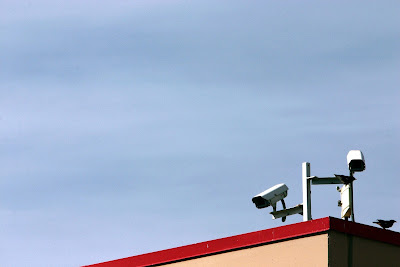Here is an excellent article from the January 2013 edition of The Economist magazine - it's about the state of the union of the American corporate investigation industry - take note of the comment that the 'due diligence side of resume background checks is a growing business. It's a good read, so grab a cup of coffee and enjoy! The Renwick Group -
www.therenwickgroup.ca
SHERLOCK HOLMES once remarked that: “It is my business to know what
other people don’t know.” These days, detective work is a huge business.
Thanks to globalisation, there is a lot that companies would like to
know but don’t, such as: is our prospective partner in Jakarta a crook?
Corporate detectives sniff out the facts, analyse them, share them
with clients and pocket fat fees. Yet, oddly for a multi-billion-dollar
industry devoted to discovering the truth, little is known about private
investigators. So your correspondent took up his magnifying glass and
set off in pursuit of the bloodhounds of capitalism.
The best-known is Kroll, founded by Jules Kroll, a former assistant
district attorney, in 1972. Along with a dozen or so rivals, it can
undertake assignments anywhere in the world, at short notice, deploying
teams of former cops and prosecutors, computer whizzes, accountants,
investigative journalists and others. These firms are the big dogs of
private detection. The industry has, ahem, a long tail of thousands of
smaller ones. The precise number is unknown since the business is
unregulated in some countries.
There is plenty of work to go round. Assignments linked to mergers
and acquisitions have dwindled along with the number of deals, but other
areas are expanding. One big source of work is the growing complexity
of business regulation. Multinationals can never be sure that some
employee, somewhere has not violated America’s Foreign Corrupt Practices
Act, or some other anti-bribery law. Corporate compliance departments
often bring gumshoes in to assist their own investigations.
An increase in whistleblowing has created more work. So has the push by Western firms into emerging markets (see
Schumpeter).
“It’s a business we win in America but serve in Asia, driven by the
export of Western ethics,” says Tom Hartley, head of Kroll Advisory
Solutions. “We’ve seen double-digit growth in each of the past four
years.”
Another growth business is “due diligence” work, such as running
background checks on a client’s potential hires or business partners.
Last year Mintz Group, a medium-sized firm based in New York, conducted
more than 20,000 checks, up 40% on 2010. “We tell clients to invest
globally but investigate locally,” says Jim Mintz, the firm’s boss. Some
clients ask for checks on everyone they deal with, even chauffeurs.
Sleuths are also hired to probe the provenance of money. Amid a global
crackdown on tax evasion, companies have grown warier of doing deals
with dodgers.
Even downturns are not all bad for corporate gumshoes. Hard times
often expose wrongdoing by causing scams to collapse. Industry figures
report a rise in fraud litigation, asset-tracing and insolvency work.
Headline-worthy mega-frauds, such as those perpetrated by Bernie Madoff
and Allen Stanford, remind potential clients of the need for security.
Big jobs can occur anywhere. Kroll recently conducted a forensic
audit of the failed Kabul Bank, from which nearly $1 billion was
allegedly embezzled, for Afghanistan’s central bank. The client base is
growing, too. Hedge funds and private-equity firms crave intelligence.
In China, where accounts are unreliable, they vet acquisition targets by
hiring sleuths to interview ex-employees. Post-Madoff, pension funds
are doing more homework on their investments, often with outside help,
says Ken Springer of Corporate Resolutions, an investigations and
consulting firm.
You know my methods. Apply them
A curious development is the growth of what might be called “self due
diligence”. Entrepreneurs from parts of the world where corruption is
rife, such as eastern Europe and Africa, are increasingly hiring
reputable corporate-intelligence firms to investigate them—sometimes
with full access to their business records. If the investigator gives
them a clean bill of health, they can wave it at banks, regulators or
potential business partners who might doubt them. The head of one
investigations firm says such work accounts for up to a third of its
London office’s revenues.
Investigators have capitalised on the recent surge in cyberattacks
and cyberspying. Some report an annual doubling of revenue in digital
forensics. The least exciting digital work is possibly the most
lucrative: electronic “discovery”, or the recovery and processing of
e-documents to support litigation. Parties to big cases have to pass
vast amounts of data to each other, especially in America. To cut costs,
companies may hire a firm with smart technology to whittle down the
e-material before the lawyers start expensively perusing it. This is
done using programs that filter out e-mails and other documents that are
irrelevant or privileged—though this “robotic” work needs to be
supplemented with human judgment, says Vincent D’Eramo of Capstone
Advisory.
Data! Data! Data!
In 2012 Kroll announced plans to double the size of its R&D team
in e-discovery and data recovery over the next five years. Mr Hartley
says the headcount in his division, the firm’s investigative core, grew
by 15% in 2011. The number of Certified Fraud Examiners (CFEs) in the
world has grown by 72% since 2007, to 37,400. (One of them, Harry
Markopolos, gave the profession street credibility by spotting the
Madoff fraud long before regulators.)
Kathy Lavinder, a headhunter, reckons the war for talent has driven
up salaries for sleuths and security consultants by 20-25% since 2010.
Members of “incident response” teams, who are expected to hop on a plane
at a moment’s notice and are thus prone to burnout, have begun to ask
for and receive guarantees of occasional time away from the daily grind
for training courses, says Ms Lavinder.
The choice of employer has expanded as new firms enter the business,
disrupting the established order. Physical-security companies, such as
Securitas, Allied Barton and Andrews International, are trying to move
further into investigations as a way to boost margins, which are thin in
the guard business. The big accounting firms, led by Deloitte, are
hiring more cybersleuths—though much of their work is internal: ie,
scrutinising clients of other parts of the group. Some investigative
firms, including Kroll, have counter-attacked by pushing into
accountancy.
Law firms have long been big clients of the gumshoes, but they too
are looking to do more investigations in-house. To this end, some are
striking deals with investigative companies: in August, for instance,
Pepper Hamilton, an American law firm, acquired a highly regarded
boutique led by Louis Freeh, a former FBI director.
Most corporate investigators are privately held and publish little
financial information. Kroll, probably the biggest, has had ups and
downs. Its zenith was its sale in 2004 to Marsh & McLennan, an
insurance broker, for a tidy $1.9 billion. By 2010, when Kroll was sold
on to Altegrity, a security group, its valuation had tumbled by 40%. One
slip-up between those two deals was to take on Allen Stanford as a
client.
The firm is still admired by its rivals, whose upper ranks are
stuffed with former Kroll people. But these days many consider the best
in the business to be FTI Consulting, which also happens to be the only
publicly traded firm of any size. Its forensic and litigation consulting
division had revenues of $177m and a profit margin of 17% in the first
six months of 2012.
After dozens of small acquisitions, FTI now employs 3,800 people. Its
boss, Jack Dunn, has poached some of Kroll’s best snoops. FTI won much
of the work of piecing together Mr Madoff’s money trail; ten years ago
the Madoff trustee would probably have given the lion’s share to Kroll.
FTI also gets a lot of work as a “corporate monitor”, checking whether
firms that have promised to mend their ways as part of a legal
settlement keep their word. The industry loves these assignments: they
typically last a couple of years, providing a recurring revenue stream.
Another threat to the old order comes from K2 Intelligence, backed by
Mr Kroll and run by his son, Jeremy. This was set up in 2009, when a
non-compete clause with his old firm expired. These days Mr Kroll
senior, now 71, is more focused on Kroll Bond Ratings, an attempt to
disrupt the credit-ratings oligopoly.
K2 has started to make a mark, conducting the investigation into
alleged bribery that forced Alcoa, an American aluminium firm, into a
$447m settlement with Alba, a Bahraini one. Convinced that the future
belongs to those with the technological savvy to “tell the story” by
interpreting vast quantities of data, Jeremy Kroll has joined forces
with Palantir, a security-software firm with past links to PayPal.
Palantir and K2 have been crunching through 18 terabytes of
transactions, e-mails and phone records in the hope of connecting dots
to support the Madoff trustee’s litigation against investors who took
more out of the Ponzi scheme than they put in. One program draws visual
webs that show the length, destination and other features of phone calls
made by Mr Madoff and his staff, and then looks for patterns.
A fast-growing business where technology will be crucial is fighting
money-laundering. Banks are under pressure to weed out suspicious
transactions, but they are drowning in data. They are willing to throw a
lot of money at the problem because the damage if they mess up can be
enormous. Witness the $1.9 billion in fines that HSBC recently paid to
settle allegations that it had abetted money-laundering by clients in
Mexico and elsewhere.
Mr Springer of Corporate Resolutions describes several recent
assignments that turned into a game of technological one-upmanship with
suspected wrongdoers. In one, his team eventually got the better of an
IT employee at a non-profit who was suspected of fraud, by sneaking a
black box into his office at night, using former National Security
Agency experts to crack the administrator code and then blind-copying
themselves into his e-mails. In many cases, the key is to combine
digital expertise with traditional investigative techniques, argues Mr
Mintz. Part of the job will continue to be “tracking down the
disgruntled former secretary or book-keeper who knows where the bodies
are buried, and knowing how to coax information from them,” he says.
The dog that barked at the right time
Jeffrey Katz, a former Kroll man who heads London-based Bishop
International, which began life investigating claims in the Lloyds
insurance market, sees new opportunities popping up all the time. His
firm has been carving niches in intellectual property, from
anti-counterfeiting (such as gathering evidence on how a particular
faker operates) to buying trademarks on behalf of big companies before
they launch a new brand. This must be done quietly, so as not to arouse
suspicion and drive up prices. Bishop did a good job for Apple with
names similar to “iPad”.
But the industry faces challenges, too. Large clients are looking to
build their own investigative capabilities, especially in
cyber-security, says Michael DuBose of Kroll, who used to run the US
Department of Justice’s computer-crime division. This could cut demand
for outside help. Barriers to entry in digital forensics have fallen.
Competition is intense. Some big assignments are decided in beauty
contests with 15 or more participants.
And even as the industry profits by helping clients cope with red
tape, it can expect tougher rules itself. Private investigators in
Britain face possible regulation in the wake of the News Corporation
phone-hacking scandal. In America, the SEC and Congress may tighten
rules on investigators and “knowledge brokers” that work for hedge
funds, some of them suspected of abetting insider trading. Corporate
detective work is anything but elementary.
If you are interested in corporate surveillance - please contact us at The Renwick Group -
www.therenwickgroup.ca
 There are so many CCTV cameras on the market today. This presents a great opportunity for you to find a camera that does exactly what you need. The first step in choosing a CCTV camera is understanding the main types of cameras out there, and of course determining the main purpose for your surveillance.
There are so many CCTV cameras on the market today. This presents a great opportunity for you to find a camera that does exactly what you need. The first step in choosing a CCTV camera is understanding the main types of cameras out there, and of course determining the main purpose for your surveillance.


